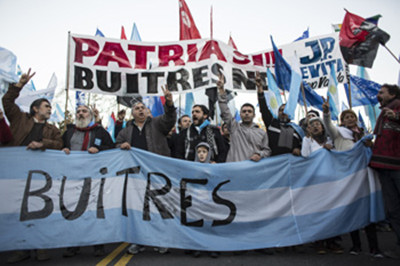Argentina's debt

The government has responded by further restricting imports, which has led to shortages of supplies to factories and of some consumer goods. That is one reason why the economy is expected to shrink by around 1% in 2015. Debt payments during the year will siphon off some 40% of international reserves. In December Argentina tried to reduce that drain by offering holders of bonds due for repayment new securities that mature in 2024. The gambit failed miserably: just 4% of creditors volunteered to exchange their 2015 bonds.
譯文屬譯生譯世











